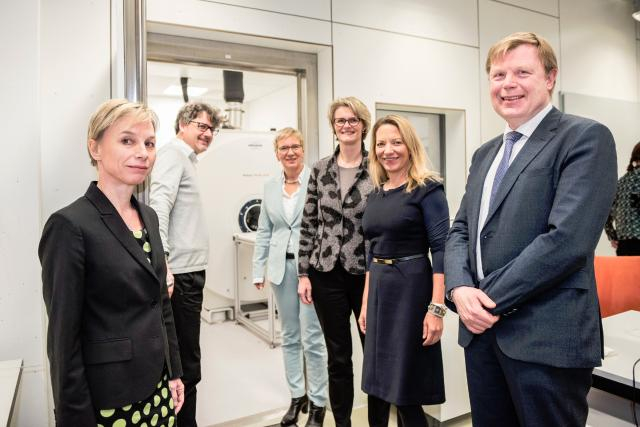08.02.2019 | At the invitation of Eva Quante-Brandt, Bremen Senator for Science, Health and Consumer Protects, the Federal Minister for Education and Research, Anja Karliczek, visited the Alfred Wegener Institute in Bremerhaven on Thursday, 7 February, as part of her trip to Bremen. During the visit she also exchanged ideas with ZMT’s Scientific Director, Prof. Dr. Hildegard Westphal, and directors of other marine research institutions such as MARUM and the Max-Planck Institute for Marine Microbiology.
She was welcomed by AWI Director Antje Boetius. The Minister and the Senator spoke with researchers from various disciplines about current issues relating to global change and changes in the marine environment.
"Oceans are the largest habitat on earth", said Anja Karliczek. "They are particularly affected by climate change as the waters warm up, their acidification levels increase and the sea ice in the polar regions melts. We want to protect the oceans. What happens in the sea has a direct impact on our life on land. Research findings are necessary to do so."
Bremen Senator Eva Quante-Brandt stressed: "The state of Bremen is one of the largest marine research locations in Germany. Research at the university and non-university institutes such as Helmholtz centres, Leibniz and Max Planck institutes is carried out at the highest international level. Close cooperation forms the basis of successful research. It is also important for developing concepts to meet the major challenges. After all, marine science is one of the key areas of research policy which the future of future generations depends on.”
"The changes in the atmosphere and the marine environment will lead to far-reaching changes on the coasts as a result of rising sea levels," continues Senator Eva Quante-Brandt. "Pollutant loads and pollution from plastics as well as overfishing of the oceans are on the increase. Bremen's marine research is diverse: geographically it covers the entire range from the poles to the tropics as well as habitats from the coasts to the open ocean and the deep sea.”





